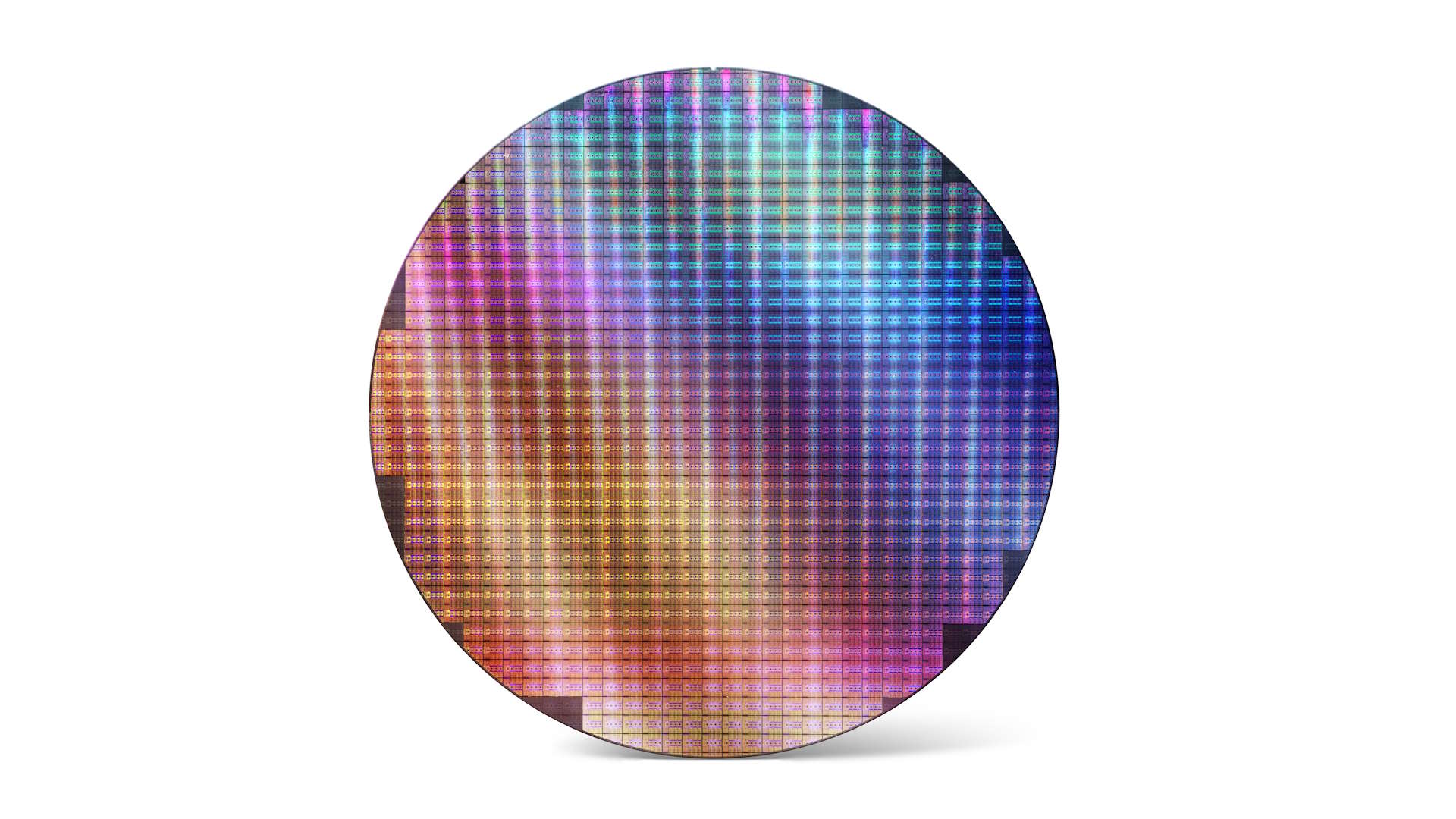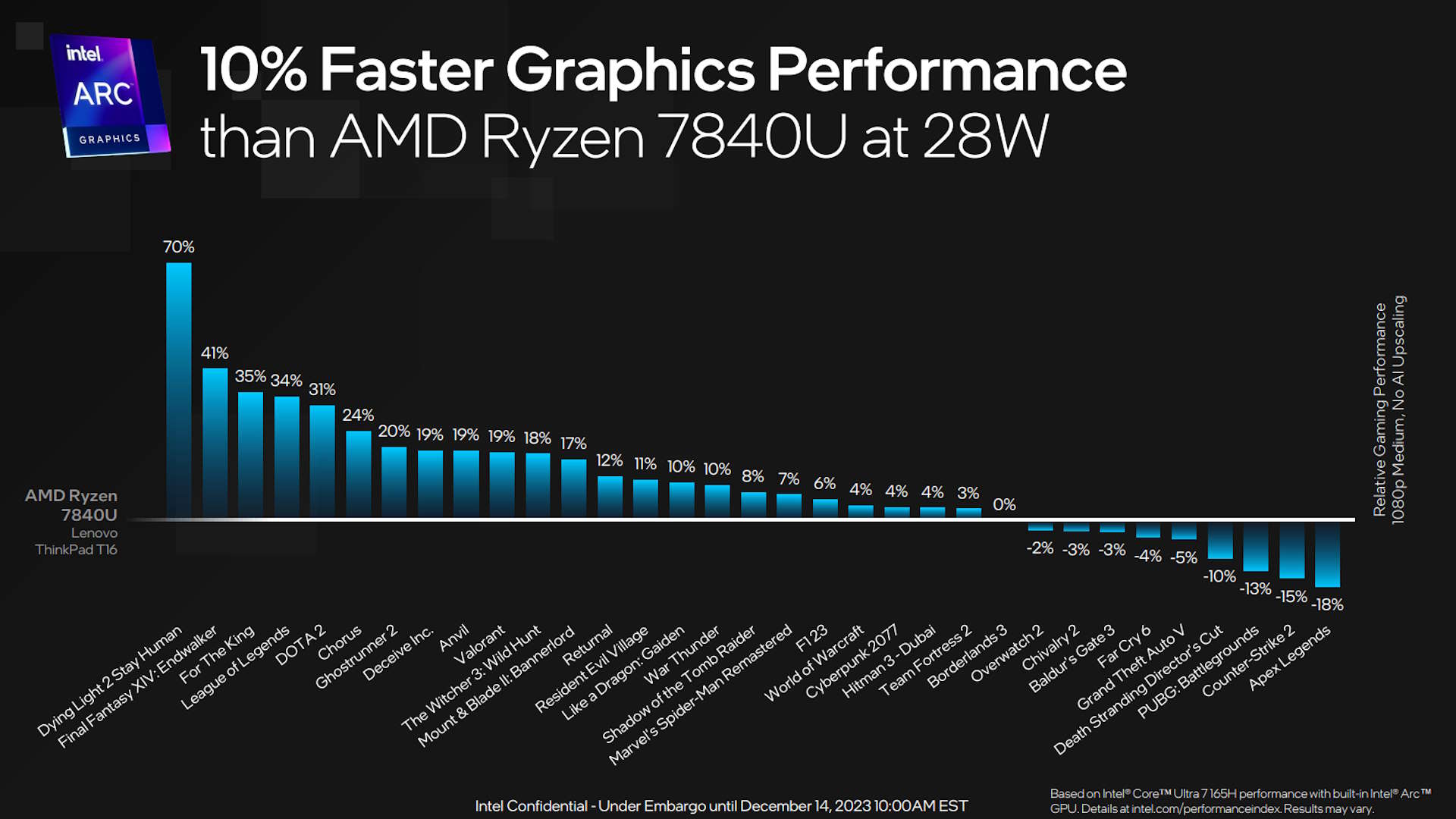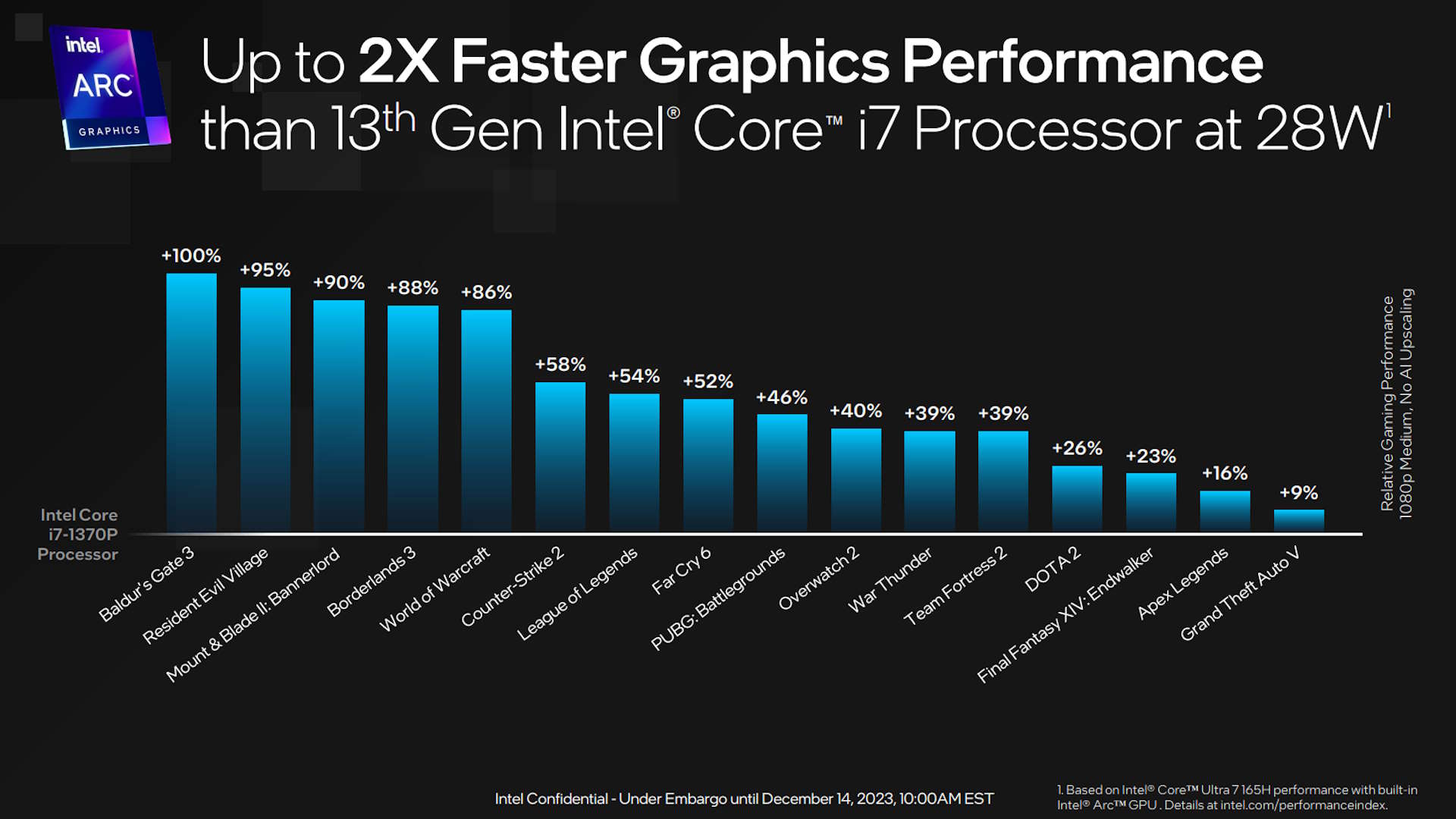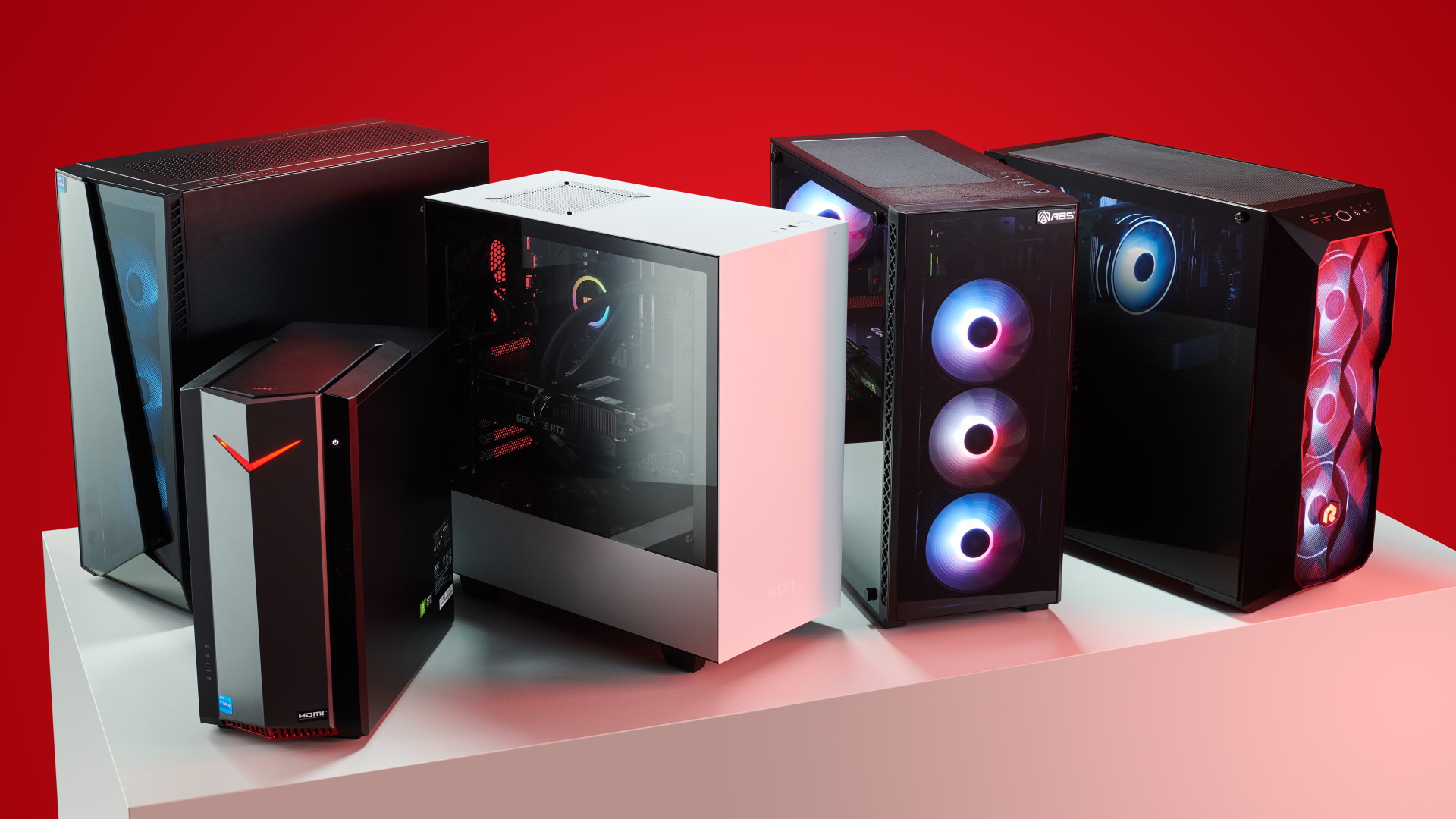
If you want your shiny new Intel Core UItra laptop to come with an equally shiny Arc Graphics badge, then you're going to need to make sure you have at least 16GB of memory inside your machine and that it's configured in dual-channel mode, too.
One of the exciting things about the new Meteor Lake chips Intel has announced today is their graphics prowess. Now, I'm not going to pretend they're going to give your RTX 4090 a run for its money, not with at most eight Xe LPG cores at their heart, but you are going to get some decent 1080p gaming performance out of them.
Think about the sort of performance on offer with the top handheld gaming PCs we've seen this year, and you'll be in the right ball-park. Intel is even promising to be, on average, 10% faster than the AMD Ryzen 7 7840U chip those devices all use.
But, because the integrated Core Ultra graphics silicon has no discrete framebuffer to call its own, it has to operate with shared memory, and that means calling on the laptop's RAM quotient. And Intel tells us that to hit its performance targets you need at least 16GB of the stuff, configured in dual-channel mode to deliver the bandwidth it needs.
"The 16GBs of graphics memory is real important, and dual-channel's also very important," Intel's Tom Petersen tells us, "because we're delivering a graphics experience using a shared memory subsystem. In contrast to discrete GPUs that have a local framebuffer, this is all using shared memory.
"So we have to specify that characteristic to be able to deliver on the promise of the Arc graphics experience. Now that's why it's going to vary based on OEM to deliver the total package to get the Arc branding. If you want to claim Arc graphics then you also have to have a 16GB memory subsystem, and it needs to be dual-channel, without that the graphics is starved and we can't deliver on our promise. So that's why we're forcing it through the OEM process."



Best gaming PC: The top pre-built machines.
Best gaming laptop: Great devices for mobile gaming.
I have a tendency to bristle at hardware restrictions, but this one I'm all onboard for. I hate the tendency for laptops to either stick in just 8GB of memory, or worse drop in a single stick of 16GB RAM, halving the potential memory bandwidth compared to what's available to a dual-channel setup with two sticks.
If this encourages laptop makers to stop messing around with this (honestly not super cost-critical) part of the specs sheet and just stick with dual-channel 16GB DDR5, then sign me up. Or, y'know, just count me as on Intel's side.







